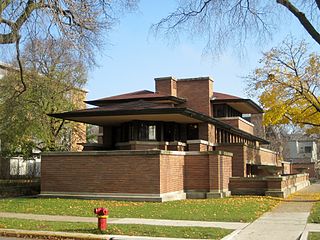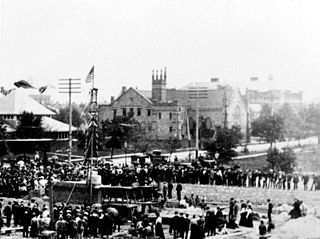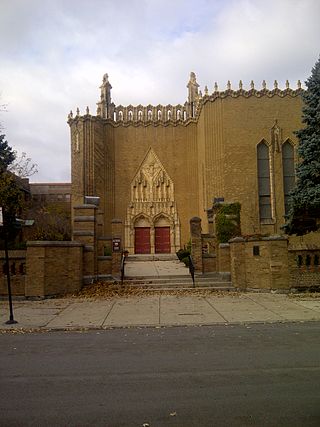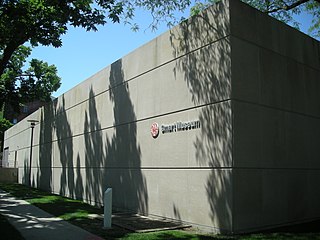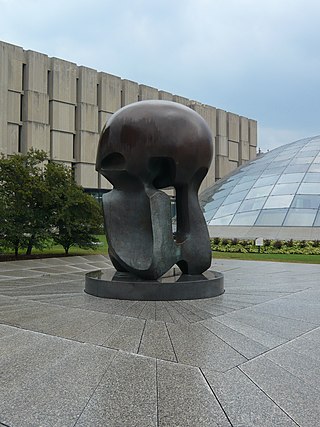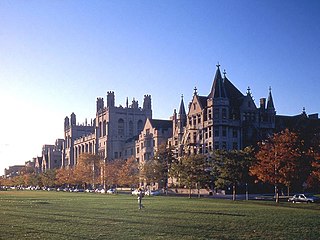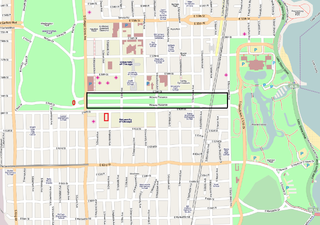Self-guided Sightseeing Tour #16 in Chicago, United States
Legend
Tour Facts
3 km
33 m
Experience Chicago in United States in a whole new way with our free self-guided sightseeing tour. This site not only offers you practical information and insider tips, but also a rich variety of activities and sights you shouldn't miss. Whether you love art and culture, want to explore historical sites or simply want to experience the vibrant atmosphere of a lively city - you'll find everything you need for your personal adventure here.
Activities in ChicagoIndividual Sights in ChicagoSight 1: Frederick C. Robie House
The Frederick C. Robie House is a historic house designed by architect Frank Lloyd Wright in 1908-09 and constructed in 1909-10. It is located in the Hyde Park neighborhood of Chicago, Illinois, on the campus of the University of Chicago. Robie House is regarded as a high point of the Prairie Style and marks the end of Wright’s Oak Park years, an incredibly creative and productive twenty-year period that has been called his first golden age.
Sight 2: First Unitarian Church of Chicago
The First Unitarian Church of Chicago is a Unitarian Universalist ("UU") church in Chicago, Illinois. Unitarians do not have a common creed and include people with a wide variety of personal beliefs, and include atheists, agnostics, deists, monotheists, pantheists, polytheists, pagans, as well as other belief systems.
Sight 3: Saint Thomas the Apostle Catholic Church
St. Thomas the Apostle Church is a historic site at 5472 S. Kimbark Avenue in Hyde Park, Chicago, Illinois, at 55th Street.
Sight 4: David and Alfred Smart Museum of Art
The David and Alfred Smart Museum of Art is an art museum located on the campus of the University of Chicago in Chicago, Illinois. The permanent collection has over 15,000 objects. Admission is free and open to the public.
Sight 5: Nuclear Energy
Nuclear Energy (1964–1966) is a bronze sculpture by Henry Moore on the campus of the University of Chicago at the site of the world's first nuclear reactor, Chicago Pile-1. The first human-made self-sustaining nuclear chain reaction was created here on December 2, 1942. The sculpture is set in a granite paved quadrangle, with the paving stones radiating outward from the sculpture, and memorial plaques mounted on a adjacent wall. The memorial site is a National Historic Landmark and Chicago Landmark.
Sight 6: Midway Plaisance
The Midway Plaisance, known locally as the Midway, is a public park on the South Side of Chicago, Illinois. It is one mile long by 220 yards wide and extends along 59th and 60th streets, joining Washington Park at its west end and Jackson Park at its east end. It divides the Hyde Park community area to the north from the Woodlawn community area to the south. Near Lake Michigan, the Midway is about 6 miles (10 km) south of the downtown "Loop". The University of Chicago was founded just north of the park, and university buildings now front the Midway to the south, as well.
Sight 7: Fountain of Time
Fountain of Time, or simply Time, is a sculpture by Lorado Taft, measuring 126 feet 10 inches (38.66 m) in length, situated at the western edge of the Midway Plaisance within Washington Park in Chicago, Illinois, in the United States. The sculpture is inspired by Henry Austin Dobson's poem "Paradox of Time". Its 100 figures passing before Father Time were created as a monument to the 100 years of peace between the United States and the United Kingdom following the Treaty of Ghent in 1814. Father Time faces the 100 from across a water basin. The fountain's water was turned on in 1920, and the sculpture was dedicated in 1922. It is a contributing structure to the Washington Park United States Registered Historic District, which is a National Register of Historic Places listing.
Share
How likely are you to recommend us?
Disclaimer Please be aware of your surroundings and do not enter private property. We are not liable for any damages that occur during the tours.
GPX-Download For navigation apps and GPS devices you can download the tour as a GPX file.
